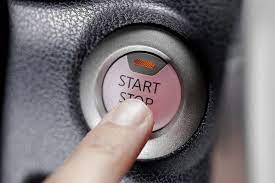If your car starts slow, there are a few things you can check to make sure it’s not something wrong with your battery or corroded battery cables.
If your battery is dead or the cables are corroded, that would be enough to cause your car to start slowly.
First, check the charge on the battery. If it’s low, you may need to replace it or recharge it. You can buy a new battery at most auto parts stores.
Next, check the cables for corrosion by removing them from their housings and examining them carefully with a flashlight and rag or paper towel.
If they are corroded, clean them off with an abrasive pad and reinstall them into their housings according to manufacturer instructions.
5 Reasons which causes my car to start slow
Here are five reasons why a car may start slowly:
1. The battery is dead
If your car starts to slow down, it may be because the battery is dead or the battery cables are corroded.
A dead battery can cause all kinds of problems, including a car that won’t start, an unreliable engine and lights that keep dying out.
A corroded battery cable can also lead to problems with your vehicle’s performance and reliability.
To check if your battery is dead, remove it from the vehicle and take it to a local auto parts store for testing.
If it has enough power for the test, then it’s fine; if not, you’ll need to replace it with a new one.
2. The starter motor is weak
The starter motor is the engine part that allows you to start your car. It’s responsible for generating enough power to get the engine running so you can drive off.
If the starter motor is weak or faulty, it can overheat, which means that it will take longer for your vehicle to start. This can be a problem if you’re in a hurry and need to get somewhere quickly!
3. The engine is flooded with fuel
This can happen if you try to start the engine when it’s already warm, or if you fill your tank with too much fuel.
When this happens, the excess fuel will collect in the cylinders and create an air-fuel mixture that is too rich for proper combustion.
This will cause your car to backfire and sputter when you try to start it, even though it has enough fuel to run.
4. Misfiring spark plug
A misfiring spark plug means that the engine can’t build up enough pressure to start the car. In order to fix this problem, you’ll need to replace the misfiring spark plug with a new one.
A misfiring spark plug can lead to other problems as well, including:
- Car does not start at all
- Engine starts but runs poorly
- Engine stalls when driving at low speeds
5. Worn-out engine
If your car starts slowly, it could be a symptom of engine wear.
When you start your car, the engine needs to turn over a few times before it reaches operating temperature and can run smoothly.
If the engine is worn, this process takes longer than usual, which means that you might have to wait a few seconds before you can drive off. This is especially true if you’ve been driving around in cold weather.
Why is my car taking longer to start?
Well, it could be one of several things. The most common culprit is the battery itself:
if it’s old, weak, or just plain dead, your car might have trouble getting the juice it needs to start.
But there are other causes as well: from clogged filters to a bad check valve in the fuel system, there are a lot of things that can cause your car to take longer to start than usual.
Does it take longer to start my car in winter?
You’ve probably noticed that it takes longer to start your car in colder weather. That’s because, even though your engine is cold, the oil inside it isn’t.
When you start your car, the oil heats up and expands quickly, which helps keep it from breaking down.
But when it’s cold outside, the oil expands more slowly, which means that you have to wait a little longer before you can drive off without damaging your engine.
It’s important to remember that this is normal and doesn’t mean there’s anything wrong with your car.
Is it normal for my car to start slow?
If your car is starting slowly, there’s a chance it could be a problem with the battery. The battery provides the energy that powers the starter motor and turns over your engine.
If you’ve experienced problems with your battery or alternator in the past, then you might notice that your car starts slower than it used to.
If this is the case, consider bringing it in for repair or replacement. You can also check to make sure there aren’t any other issues with your starter motor before taking any action.
Conclusion
In conclusion, there are a number of reasons why your car may start slow. The battery is dead or the battery cables are corroded. The starter motor is weak or faulty, which can cause it to overheat. The engine is flooded with fuel. A misfiring spark plug or worn-out engine are other possible causes of your car starting slow.

